LDL
How to submit an article:
- Registered users can submit any published journal article that has a unique DOI (Digital Object Identifier) name or link to Research Hub.
- For example, you can paste the full DOI link:
https://doi.org/10.1109/5.771073or just the DOI name:10.1109/5.771073into the field above and click submit. - The person who is first to submit a valid article to Research Hub will forever be credited for it, and every article submission earns you +6 Research Points.
Related Topics
Published research studies are articles that present the findings of original research that has undergone a peer-review process and has been made publicly available in scholarly journals, books or other media.
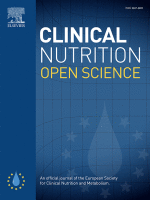
The effect of consumption Ziziphus jujuba on metabolic factors: A systematic review and meta-analysis of randomized clinical trials
2024 Jun Clinical Nutrition Open Science Heydarian A, Tahvilian N, Shahinfar H, Abbas-Hashemi SA, Bahari H, Cheshmeh S, et al.
Meta-Analysis Systematic Review Metabolic Syndrome JujubeDaily intake of Ziziphus jujuba can control weight and improve lipid profile indicators.
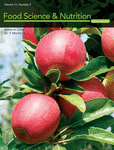
The effects of plum products consumption on lipid profile in adults: A systematic review and dose–response meta‐analysis
2024 Feb 25 Food Science & Nutrition Heydarian A, Tahvilian N, Asbaghi O, Cheshmeh S, Nadery M, Aryaeian N
Systematic Review Cholesterol LDL PlumEating plums, especially dried plums, significantly lowers LDL levels and total cholesterol levels, particularly in adults with existing health issues.

Pomegranate effects on the health aspects of women during peri‐ and postmenopause: A systematic review and meta‐analysis
2023 Nov 06 Phytotherapy Research Moeini R, Shirafkan H, Gorji N
Systematic Review Women's Health Menopause Pomegranate Hot FlushesPomegranate can significantly enhance women's health during and after menopause by reducing hot flashes severity and other menopause symptoms.
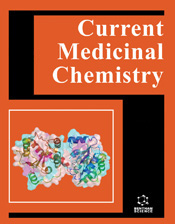
The Effects of Apple Cider Vinegar on Cardiometabolic Risk Factors: A Systematic Review and Meta-analysis of Clinical Trials
2023 Oct 11 Current Medicinal Chemistry Dadkhah Tehrani S, Keshani M, Rouhani MH, Moallem SA, Bagherniya M, Sahebkar A
Systematic Review Meta-Analysis Apple Cider Vinegar Blood Sugar Cholesterol HbA1CConsumption of apple cider vinegar significantly improves certain risk factors for cardiometabolic syndrome, notably fasting blood glucose, glycosylated hemoglobin, and total cholesterol.

The effects of pomegranate consumption on lipid profile in adults: A systematic review and meta-analysis
2023 Sep Journal of Functional Foods Bahari H, Rezaiian F, Goudarzi K, Nooshan Mirmohammadali S, Asbaghi O, sadat Hosseini kolbadi K, et al.
Systematic Review Meta-Analysis Cholesterol Triglyceride PomegranatePomegranate consumption positively affects triglycerides, low-density lipoprotein cholesterol, and high-density lipoprotein cholesterol levels.
Research insights are moderated by the Research Hub team and offer an at-a-glance overview of interesting research findings.

2024 Clinical Nutrition Open Science
Daily intake of Ziziphus jujuba can control weight and improve lipid profile indicators.
Meta-Analysis Jujube Metabolic Syndrome
The effect of consumption Ziziphus jujuba on metabolic factors: A systematic review and meta-analysis of randomized clinical trials
Heydarian A, Tahvilian N, Shahinfar H, Abbas-Hashemi SA, Bahari H, Cheshmeh S, et al.

2024 Food Science & Nutrition
Eating plums, especially dried plums, significantly lowers LDL levels and total cholesterol levels, particularly in adults with existing health issues.
Systematic Review Cholesterol Plum
The effects of plum products consumption on lipid profile in adults: A systematic review and dose–response meta‐analysis
Heydarian A, Tahvilian N, Asbaghi O, Cheshmeh S, Nadery M, Aryaeian N

2023 Phytotherapy Research
Pomegranate can significantly enhance women's health during and after menopause by reducing hot flashes severity and other menopause symptoms.
Systematic Review Hot Flushes Menopause Pomegranate Women's Health
Pomegranate effects on the health aspects of women during peri‐ and postmenopause: A systematic review and meta‐analysis
Moeini R, Shirafkan H, Gorji N

2023 Current Medicinal Chemistry
Consumption of apple cider vinegar significantly improves certain risk factors for cardiometabolic syndrome, notably fasting blood glucose, glycosylated hemoglobin, and total cholesterol.
Systematic Review Apple Cider Vinegar Blood Sugar Cholesterol HbA1C
The Effects of Apple Cider Vinegar on Cardiometabolic Risk Factors:
A Systematic Review and Meta-analysis of Clinical Trials
Dadkhah Tehrani S, Keshani M, Rouhani MH, Moallem SA, Bagherniya M, Sahebkar A

2023 Phytotherapy Research
Propolis supplementation positively influences metabolic factors, testosterone levels, lipid profile, and body measurements in women suffering from polycystic ovarian syndrome.
Randomised Controlled Trial
The effects of propolis supplementation on high‐sensitivity C‐reactive protein, testosterone hormone, and metabolic profile in women with polycystic ovary syndrome: A randomized, triple‐blinded, placebo‐controlled clinical trial
Abbasi E, Bagherniya M, Soleimani D, Ghasemi‐Tehrani H, Abbaspour M, Clark CCT, et al.
Review Articles
Review articles summarise and critically evaluate the current state of research on a specific topic or field by synthesising multiple primary research studies.

The effect of consumption Ziziphus jujuba on metabolic factors: A systematic review and meta-analysis of randomized clinical trials
2024 Jun Clinical Nutrition Open Science Heydarian A, Tahvilian N, Shahinfar H, Abbas-Hashemi SA, Bahari H, Cheshmeh S, et al.
Meta-Analysis Systematic Review Metabolic Syndrome JujubeDaily intake of Ziziphus jujuba can control weight and improve lipid profile indicators.

The effects of plum products consumption on lipid profile in adults: A systematic review and dose–response meta‐analysis
2024 Feb 25 Food Science & Nutrition Heydarian A, Tahvilian N, Asbaghi O, Cheshmeh S, Nadery M, Aryaeian N
Systematic Review Cholesterol LDL PlumEating plums, especially dried plums, significantly lowers LDL levels and total cholesterol levels, particularly in adults with existing health issues.

Pomegranate effects on the health aspects of women during peri‐ and postmenopause: A systematic review and meta‐analysis
2023 Nov 06 Phytotherapy Research Moeini R, Shirafkan H, Gorji N
Systematic Review Women's Health Menopause Pomegranate Hot FlushesPomegranate can significantly enhance women's health during and after menopause by reducing hot flashes severity and other menopause symptoms.

The Effects of Apple Cider Vinegar on Cardiometabolic Risk Factors: A Systematic Review and Meta-analysis of Clinical Trials
2023 Oct 11 Current Medicinal Chemistry Dadkhah Tehrani S, Keshani M, Rouhani MH, Moallem SA, Bagherniya M, Sahebkar A
Systematic Review Meta-Analysis Apple Cider Vinegar Blood Sugar Cholesterol HbA1CConsumption of apple cider vinegar significantly improves certain risk factors for cardiometabolic syndrome, notably fasting blood glucose, glycosylated hemoglobin, and total cholesterol.

The effects of pomegranate consumption on lipid profile in adults: A systematic review and meta-analysis
2023 Sep Journal of Functional Foods Bahari H, Rezaiian F, Goudarzi K, Nooshan Mirmohammadali S, Asbaghi O, sadat Hosseini kolbadi K, et al.
Systematic Review Meta-Analysis Cholesterol Triglyceride PomegranatePomegranate consumption positively affects triglycerides, low-density lipoprotein cholesterol, and high-density lipoprotein cholesterol levels.
Clinical Trials
Clinical trials are research studies that involve people and are conducted to evaluate the safety and efficacy of new treatments or interventions, such as drugs, medical devices, or behavioural therapies.

The effects of propolis supplementation on high‐sensitivity C‐reactive protein, testosterone hormone, and metabolic profile in women with polycystic ovary syndrome: A randomized, triple‐blinded, placebo‐controlled clinical trial
2023 Sep 02 Phytotherapy Research Abbasi E, Bagherniya M, Soleimani D, Ghasemi‐Tehrani H, Abbaspour M, Clark CCT, et al.
Randomised Controlled TrialPropolis supplementation positively influences metabolic factors, testosterone levels, lipid profile, and body measurements in women suffering from polycystic ovarian syndrome.
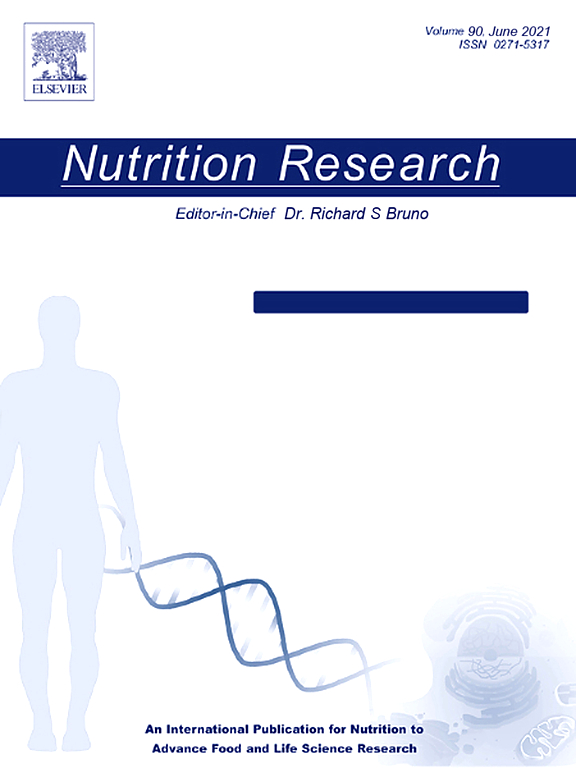
Pecan-enriched diet improves cholesterol profiles and enhances postprandial microvascular reactivity in older adults
2023 Mar Nutrition Research Cogan B, Pearson RC, Paton CM, Jenkins NT, Cooper JA
Daily consumption of 68 g of pecans for 4 weeks resulted in greater reductions in fasting total cholesterol, low-density lipoprotein (LDL) cholesterol, non-high-density lipoprotein cholesterol, LDL particle number, and LDL medium compared to a nut-free diet. Postprandial triglyceride levels were suppressed with pecan consumption, and improvements in microvascular reactivity were observed. Fasting macro- and microvascular function remained unaffected. The findings suggest that pecan consumption may contribute to improved vascular health and reduced cardiovascular risk in older adults.
Clinical Study Randomised Controlled Trial Cholesterol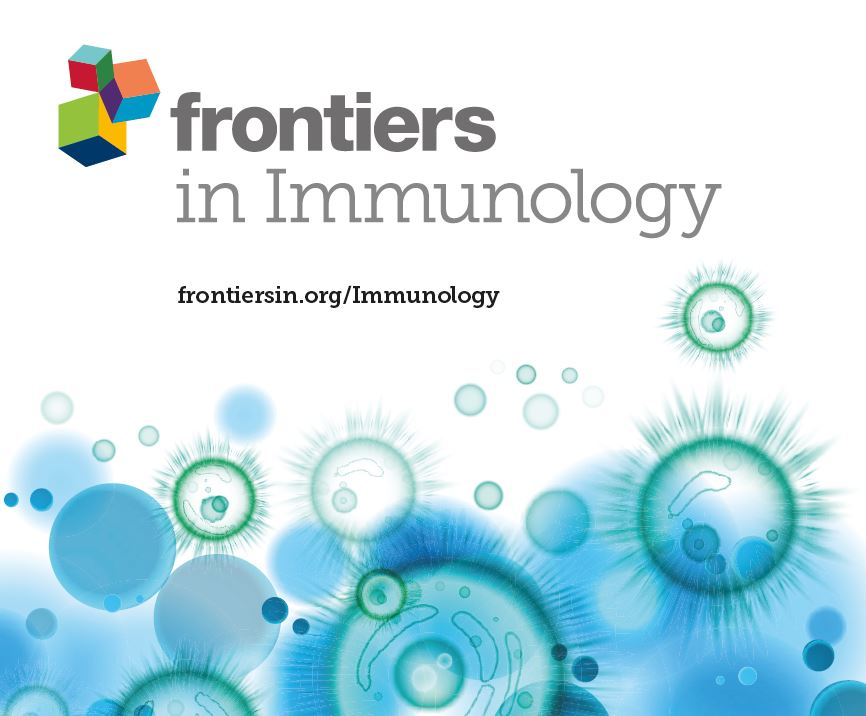
The Prebiotic Effects of Oats on Blood Lipids, Gut Microbiota, and Short-Chain Fatty Acids in Mildly Hypercholesterolemic Subjects Compared With Rice: A Randomized, Controlled Trial
2021 Dec 09 Frontiers in Immunology Xu D, Feng M, Chu YF, Wang S, Shete V, Tuohy KM, et al.
Experimental Study Randomised Controlled Trial Oats Cholesterol Gut MicrobiotaConsuming oats significantly lessens total and LDL cholesterol levels and mediates a prebiotic effect on the gut microbiome, contributing to its cholesterol-lowering ability.
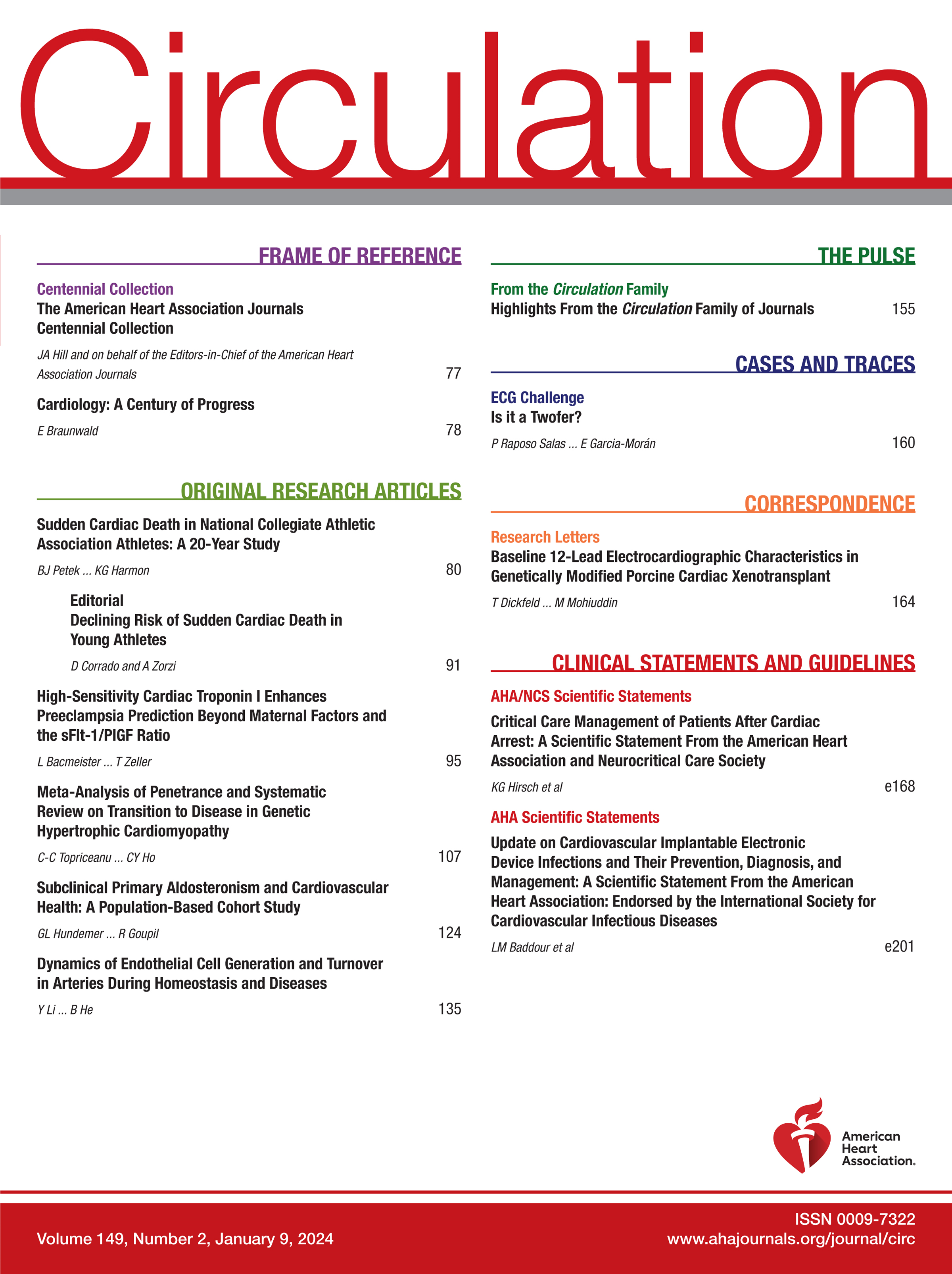
Effects of Walnut Consumption for 2 Years on Lipoprotein Subclasses Among Healthy Elders
2021 Sep 28 Circulation Rajaram S, Cofán M, Sala-Vila A, Haddad E, Serra-Mir M, Bitok E, et al.
Randomised Controlled Trial Cholesterol Walnut LDL
The effect of pomegranate extract on anthropometric indices, serum lipids, glycemic indicators, and blood pressure in patients with nonalcoholic fatty liver disease: A randomized double‐blind clinical trial
2021 Sep 08 Phytotherapy Research Goodarzi R, Jafarirad S, Mohammadtaghvaei N, Dastoorpoor M, Alavinejad P
Randomised Controlled Trial Obesity Pomegranate HDL-C Blood Sugar Triglyceride Insulin Resistance Cholesterol Diastolic Blood PressurePomegranate extract supplement shows potential in improving glycemic indicators, serum lipids, anthropometrics, and blood pressure in patients with nonalcoholic fatty liver disease.
Study Protocols
Published study protocols are detailed plans that outline the objectives, methodology, statistical analyses, and organisation of a research study that have been made publicly available for others to review and use as a reference.
Presentation Slides

Meta-Analysis
Daily intake of Ziziphus jujuba can control weight and improve lipid profile indicators.
Heydarian A, Tahvilian N, Shahinfar H, Abbas-Hashemi SA, Bahari H, Cheshmeh S, Aryaeian N

Systematic Review
Eating plums, especially dried plums, significantly lowers LDL levels and total cholesterol levels, particularly in adults with existing health issues.
Heydarian A, Tahvilian N, Asbaghi O, Cheshmeh S, Nadery M, Aryaeian N

Systematic Review
Pomegranate can significantly enhance women's health during and after menopause by reducing hot flashes severity and other menopause symptoms.
Moeini R, Shirafkan H, Gorji N

Systematic Review
Consumption of apple cider vinegar significantly improves certain risk factors for cardiometabolic syndrome, notably fasting blood glucose, glycosylated hemoglobin, and total cholesterol.
Dadkhah Tehrani S, Keshani M, Rouhani MH, Moallem SA, Bagherniya M, Sahebkar A

Randomised Controlled Trial
Propolis supplementation positively influences metabolic factors, testosterone levels, lipid profile, and body measurements in women suffering from polycystic ovarian syndrome.
Abbasi E, Bagherniya M, Soleimani D, Ghasemi‐Tehrani H, Abbaspour M, Clark CCT, Askari G

Systematic Review
Pomegranate consumption positively affects triglycerides, low-density lipoprotein cholesterol, and high-density lipoprotein cholesterol levels.
Bahari H, Rezaiian F, Goudarzi K, Nooshan Mirmohammadali S, Asbaghi O, sadat Hosseini kolbadi K, Naderian M, Hosseini A
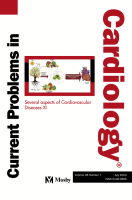
Systematic Review
Oat consumption can significantly improve lipid profiles, particularly reducing total cholesterol and LDL cholesterol, with potential positive effects on triglycerides and HDL cholesterol under certain conditions.
Amerizadeh A, Ghaheh HS, Vaseghi G, Farajzadegan Z, Asgary S
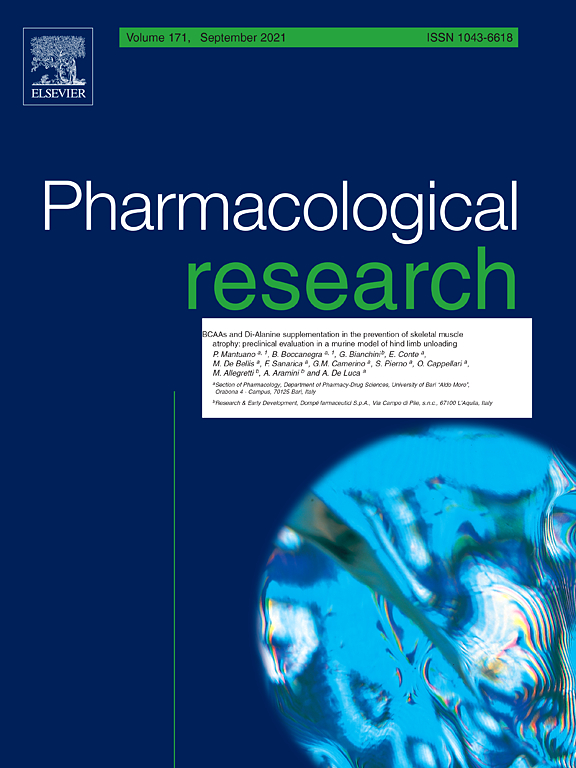
Review Article
Consumption of tea and coffee may possibly provide anti-inflammatory effects, contributing to reduced cardiovascular risk and mortality.
Surma S, Sahebkar A, Banach M
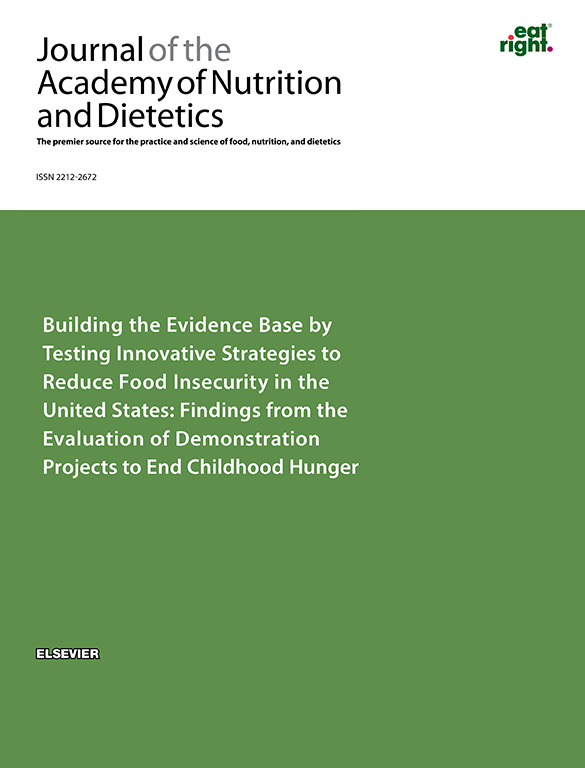
Systematic Review
Avocado consumption may lead to a reduction in total cholesterol and low-density lipoprotein cholesterol levels in people with high cholesterol without impacting body weight.
James-Martin G, Brooker PG, Hendrie GA, Stonehouse W

Meta-Analysis
Certain species of citrus extracts effectively control dyslipidemia, reducing total cholesterol, LDL, and triglycerides while increasing HDL, primarily due to their rich antioxidant composition.
Carvalho BMR, Nascimento LC, Nascimento JC, Gonçalves VSS, Ziegelmann PK, Tavares DS, Guimarães AG

Experimental Study
Consuming oats significantly lessens total and LDL cholesterol levels and mediates a prebiotic effect on the gut microbiome, contributing to its cholesterol-lowering ability.
Xu D, Feng M, Chu YF, Wang S, Shete V, Tuohy KM, Liu F, Zhou X, Kamil A, Pan D, Liu H, Yang X, Yang C, Zhu B, Lv N, Xiong Q, Wang X, Sun J, Sun G, Yang Y

Systematic Review
Cinnamon supplementation may significantly enhance metabolic status in women with polycicstic ovary syndrome, notably improving high-density lipoprotein and insulin sensitivity, and decreasing low-density lipoprotein, triglyceride, and blood glucose levels.
Maleki V, Faghfouri AH, Tabrizi FPF, Moludi J, Saleh-Ghadimi S, Jafari-Vayghan H, Qaisar SA

Randomised Controlled Trial
Pomegranate extract supplement shows potential in improving glycemic indicators, serum lipids, anthropometrics, and blood pressure in patients with nonalcoholic fatty liver disease.
Goodarzi R, Jafarirad S, Mohammadtaghvaei N, Dastoorpoor M, Alavinejad P

Systematic Review
Apple cider vinegar intake can significantly decrease total cholesterol and fasting plasma glucose levels contributing to better cardiovascular health among adults.
Hadi A, Pourmasoumi M, Najafgholizadeh A, Clark CCT, Esmaillzadeh A

Systematic Review
The consumption of cocoa or dark chocolate can reduce low-density lipoprotein cholesterol and fasting blood sugar levels in diabetic patients.
Darand M, Hajizadeh Oghaz M, Hadi A, Atefi M, Amani R
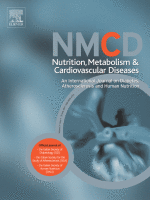
Systematic Review
Consumption of certain foods like rapeseed/canola oil, avocados, and turmeric can lead to moderate to large reductions in LDL cholesterol levels.
Schoeneck M, Iggman D
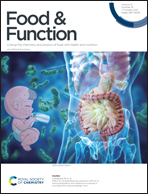
Systematic Review
Almond intake significantly changed the concentrations of triglycerides, total cholesterol and low-density lipoproteins
Asbaghi O, Moodi V, Hadi A, Eslampour E, Shirinbakhshmasoleh M, Ghaedi E, Miraghajani M

Experimental Study
Pomegranate seed oil, rich in conjugated linolenic acid, potentially acts as a cytotoxic agent on tissue tumor cells, reducing polycystic ovary syndrome manifestations.
Bahmani M, Shokri S, Akhtar ZN, Abbaszadeh S, Manouchehri A

Systematic Review
Based on moderate certainty of evidence, we conclude that acupuncture is mildly more effective and much safer than medication for the prophylaxis of migraine.
Giovanardi CM, Cinquini M, Aguggia M, Allais G, Campesato M, Cevoli S, Gentili F, Matrà A and Minozzi S
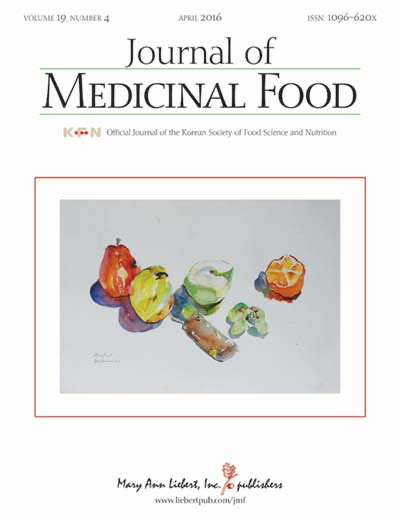
Randomised Controlled Trial
Daily consumption of tart cherry juice may reduce processes involved in accelerated atherogenesis, potentially decreasing the risk of cardiovascular diseases.
Johnson SA, Navaei N, Pourafshar S, Jaime SJ, Akhavan NS, Alvarez-Alvarado S, Proaño GV, Litwin NS, Clark EA, Foley EM, George KS, Elam ML, Payton ME, Arjmandi BH, Figueroa A
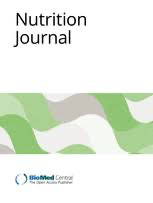
Systematic Review
The consumption of green tea significantly lowers low-density lipoprotein cholesterol and total cholesterol, but it does not affect high-density lipoprotein cholesterol or triglycerides.
Xu R, Yang K, Li S, Dai M, Chen G

Randomised Controlled Trial
Concentrated pomegranate juice consumption can potentially lower cardiovascular disease risk factors in women with polycystic ovary syndrome.
Abedini M, Ghasemi‐Tehrani H, Tarrahi MJ, Amani R
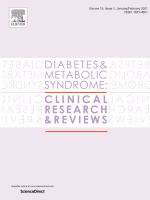
Systematic Review
Green tea extract supplement intake reduces serum triglyceride and total cholesterol in patients with type 2 diabetes mellitus, especially when used long term.
Asbaghi O, Fouladvand F, Moradi S, Ashtary-Larky D, Choghakhori R, Abbasnezhad A

Systematic Review
Fenugreek supplementation could be considered as an effective lipid-lowering medicinal plant.
Kiyan Heshmat-Ghahdarijani,Neda Mashayekhiasl,Atefeh Amerizadeh,Zahra Teimouri Jervekani,Masoumeh Sadeghi,
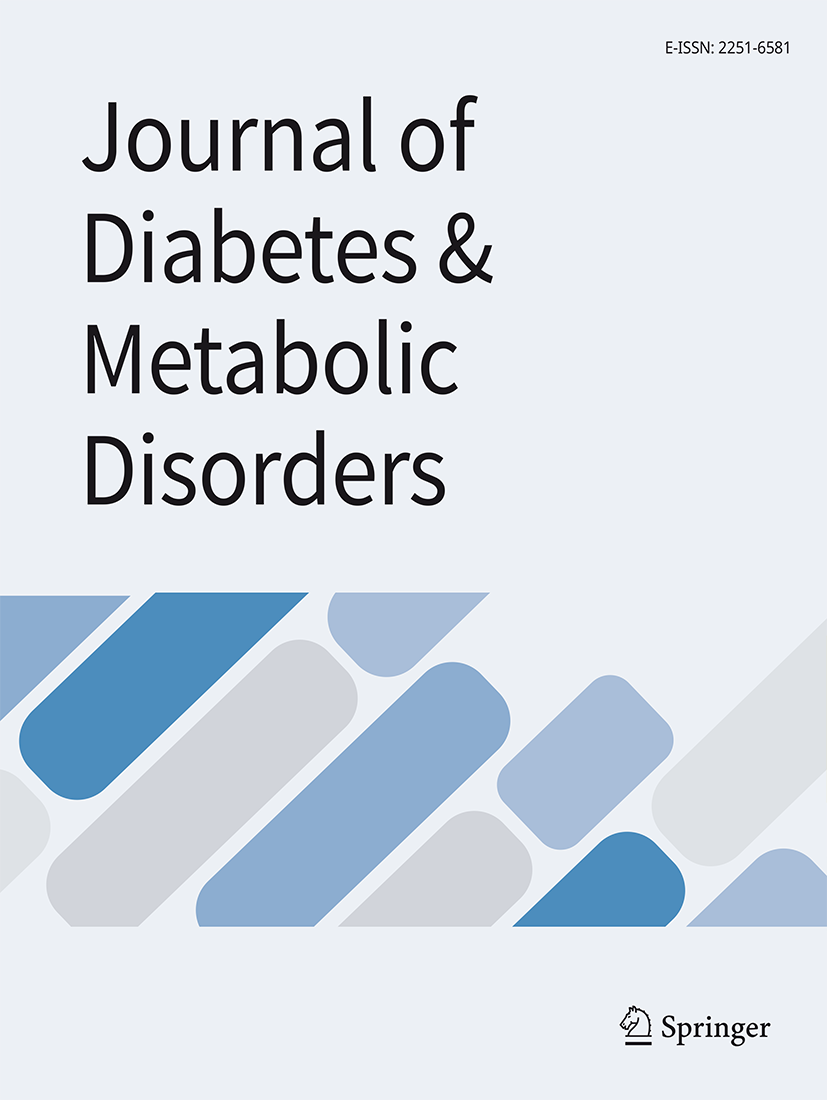
Systematic Review
Green coffee supplementation significantly decreases fasting blood sugar, insulin, and triglycerides while boosting high-density lipoprotein levels.
Morvaridi M, Rayyani E, Jaafari M, Khiabani A, Rahimlou M
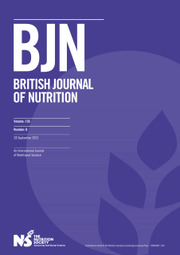
Meta-Analysis
Strawberry interventions significantly reduced CRP levels and may improve total cholesterol and LDL-cholesterol in individuals with high baseline levels.
Gao Q, Qin LQ, Arafa A, Eshak ES, Dong JY

Randomised Controlled Trial
Daily intake of 3 grams of oat beta-glucans significantly reduces LDL-Cholesterol, Total Cholesterol, and non-HDL-Cholesterol levels without impacting intestinal well-being or glucose levels.
Cicero AFG, Fogacci F, Veronesi M, Strocchi E, Grandi E, Rizzoli E, Poli A, Marangoni F, Borghi C
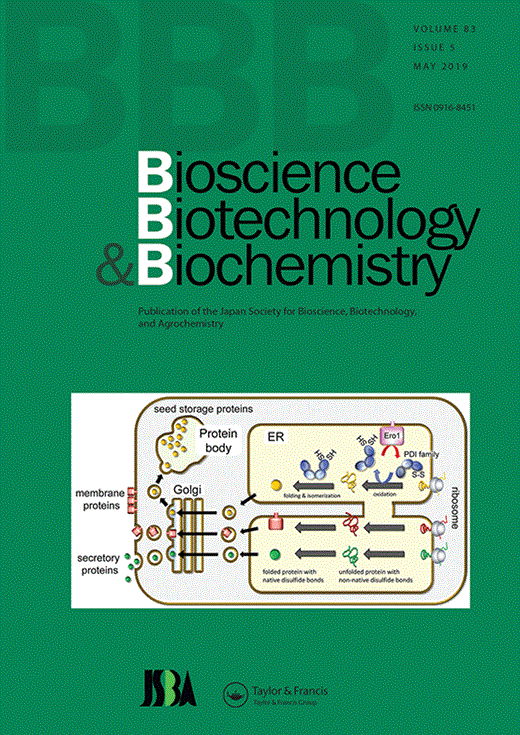
Randomised Controlled Trial
Adzuki bean extract administered once a day can result in increased HDL-C concentration.
Kitano-Okada T, Nagata R, Han KH, Mikami N, Satoh K, Nishihira J, Sasaki K, Ohba K, Fukusima M

Randomised Controlled Trial
Daily consumption of tart cherry juice for 12 weeks showed anti-oxidative and anti-inflammatory properties which may reduce blood pressure and lower LDL cholesterol in older adults.
Chai S, Davis K, Zhang Z, Zha L, Kirschner K

Experimental Study
Extract of pumpkin seeds displays estrogenic properties, potentially offering a solution to alleviate symptoms of menopausal syndromes resulting from estrogen deficiency.
Lestari B, Walidah Z, Utomo RY, Murwanti R, Meiyanto E
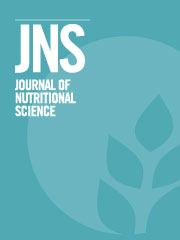
Randomised Controlled Trial
Daily consumption of three gold-fleshed kiwifruit is associated with a significant increase of two complete spontaneous bowel movements per week and reduction in gastrointestinal discomfort in mildly constipated adults.
Eady SL, Wallace AJ, Butts CA, Hedderley D, Drummond L, Ansell J, Gearry RB

Systematic Review
Ginger supplementation has a favorable effect on levels of triacylglycerol and low-density lipoprotein cholesterol, especially in doses of 2 grams or less per day.
Pourmasoumi M, Hadi A, Rafie N, Najafgholizadeh A, Mohammadi H, Rouhani MH
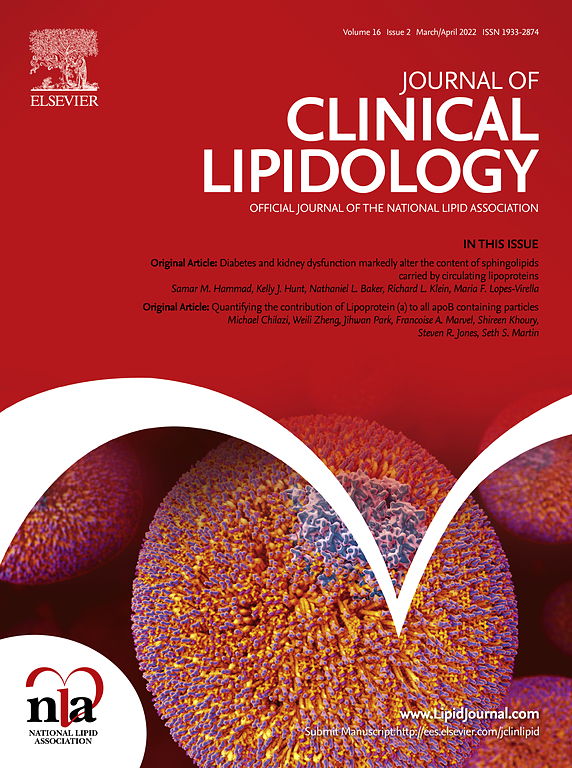
Systematic Review
Cinnamon supplementation significantly reduces blood triglycerides and total cholesterol levels without affecting low-density and high-density lipoprotein cholesterol.
Maierean SM, Serban MC, Sahebkar A, Ursoniu S, Serban A, Penson P, Banach M
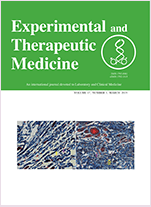
Randomised Controlled Trial
Pomegranate juice consumption over a short period promotes red blood cell production without significantly changing metabolic health and inflammation markers in healthy individuals.
Manthou E, Georgakouli K, Deli CK, Sotiropoulos A, Fatouros IG, Kouretas D, Haroutounian S, Matthaiou C, Koutedakis Y, Jamurtas AZ
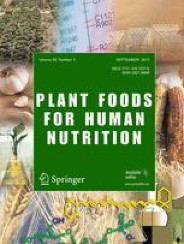
Randomised Controlled Trial
Pomegranate juice intake can reduce systolic and diastolic blood pressure and inflammation markers, but may increase triglyceride and very low-density lipoprotein cholesterol levels.
Moazzen H, Alizadeh M

Clinical Study
Drinking 1litre of mineral water daily with meals can reduce risk factors for heart and metabolic diseases, particularly when replacing sugary drinks.
Toxqui L, Vaquero M

Systematic Review
Almond consumption effectively reduces blood lipid levels, thus reducing risk of heart disease.
Musa-Veloso K, Paulionis L, Poon T, Lee HY
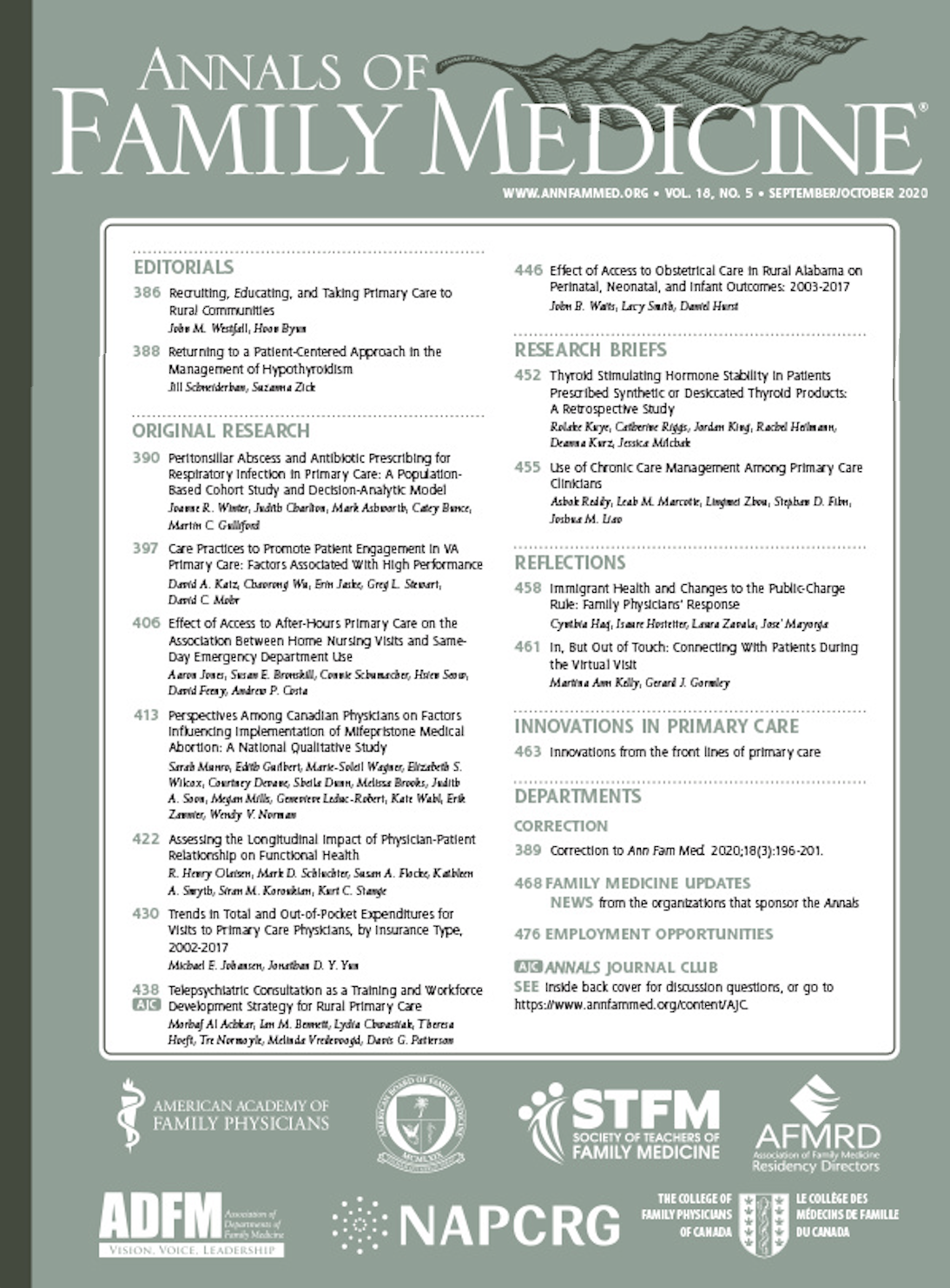
Systematic Review
The consumption of cinnamon is associated with a statistically significant decrease in levels of fasting plasma glucose, total cholesterol, LDL-C, and triglyceride levels, and an increase in HDL-C levels.
Robert W. Allen, Emmanuelle Schwartzman, William L. Baker, Craig I. Coleman and Olivia J. Phung

Systematic Review
The consumption of green tea catechins is associated with a statistically significant reduction in total and LDL cholesterol levels.
Kim A, Chiu A, Barone MK, Avino D, Wang F, Coleman CI, Phung OJ
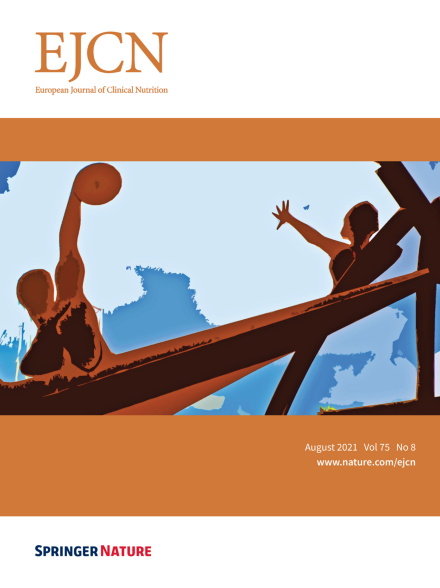
Meta-Analysis
Consumption of dark chocolate and cocoa products has been shown to significantly reduce serum levels of low-density lipoprotein (LDL) and total cholesterol (TC), indicating potential cardiovascular benefits.
Tokede OA, Gaziano JM, Djoussé L
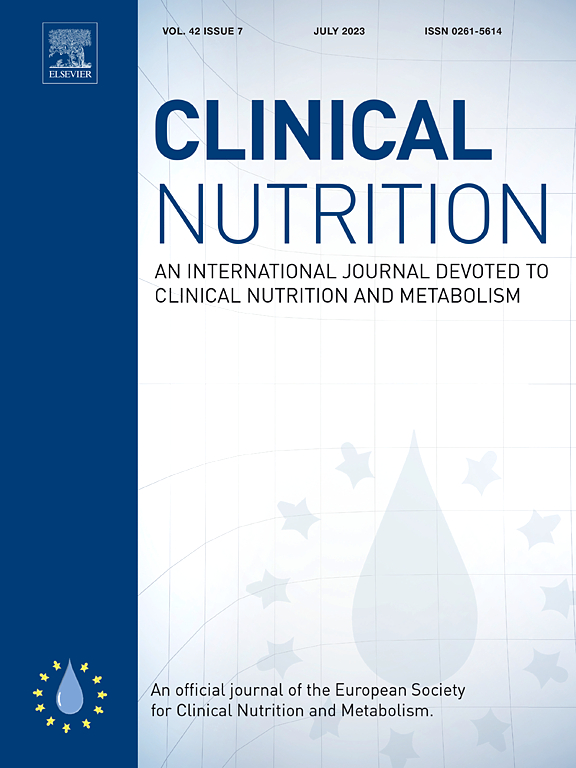
Clinical Study
Consumption of pomegranate juice by patients with carotid artery stenosis decreases carotid intima-media thickness and systolic blood pressure, potentially due to its strong antioxidant properties.
Aviram M, Rosenblat M, Gaitini D, Nitecki S, Hoffman A, Dornfeld L, Volkova N, Presser D, Attias J, Liker H, Hayek T
Executive Summary
Write an executive summary in the form of a blog article on the topic of "Research into Chinese medicine treatment for LDL" summarising the research below and using language that can be easily understood by patients and avoiding medical jargon using a professional and caring tone of voice.
Write an executive summary in the form of a blog article on the topic of "Researched Chinese medicine treatments for LDL" summarising the research below in an objective and easy to understand way, and using language that can be easily understood by patients. Group the article into Chinese medicine treatments first, followed by nutrition and other treatments. Avoid using medical jargon and use a professional and caring tone of voice.
Write me a concise but easy to understand executive summary on the topic of "Chinese medicine treatments for LDL" based on the following research that I will give you. Your summary should be 2 paragraphs long in Australian English spelling and include references to the studies.
A Meta-Analysis published in 2024 in the journal Clinical Nutrition Open Science found that Daily intake of Ziziphus jujuba can control weight and improve lipid profile indicators. In the methodology, randomized clinical trials were sourced from online resources like PubMed, Scopus, and ISI Web of Science till October 2022. From these resources, four suitable articles were picked for this research. The results section suggests that a notable decrease in body mass index (BMI), triglycerides (TG), total cholesterol (TC), and low-density lipoprotein (LDL) is observed in individuals consuming Ziziphus jujuba. However, there were no significant changes observed in fasting blood glucose (FBG) and high-density lipoprotein (HDL). These findings underscore the potential beneficial impact of Ziziphus jujuba consumption on certain metabolic indicators.
A Systematic Review published in 2024 in the journal Food Science & Nutrition found that Eating plums, especially dried plums, significantly lowers LDL levels and total cholesterol levels, particularly in adults with existing health issues. The researchers conducted a systematic review and meta-analysis using keyword searches on databases such as PubMed, Scopus, and ISI Web of Science up to a specified date. They were on a mission to find eligible trials that would help ascertain the benefits of plum consumption on adult lipid profiles. In their observation of the collected data, they concluded that plum, specifically dried plum consumption, had a noteworthy impact on LDL levels, mainly when the subjects were in an unhealthy state. This consumption led to a significant decrease in total cholesterol levels in the unhealthy subjects. Nevertheless, the study couldn't establish major changes in triglycerides and HDL concentrations as a result of the plum consumption.
A Systematic Review published in 2023 in the journal Phytotherapy Research found that Pomegranate can significantly enhance women's health during and after menopause by reducing hot flashes severity and other menopause symptoms. The study aimed at understanding the impacts of pomegranate on women's health through and following menopause. To gather data, a rigorous search was conducted on various academic platforms, including PubMed, Web of Science, Cochrane, Scopus, and Google Scholar, up to the end of 2022. All forms of clinical research studies, from randomized clinical trials to case series, were considered for review. The material was evaluated using the Cochrane RoB 2.0 tool specifically for quality assessment of randomized clinical trials. To quantify the effects of the pomegranate intervention, standardized mean differences were calculated using a random effect model. It was found that pomegranate significantly reduces the severity of hot flashes in menopausal women, improves their high-density lipoprotein levels, and reduces the Follicle-Stimulating Hormone (FSH). However, no significant improvement was noticed in the low-density lipoprotein, body mass index, and body weight. Despite these findings, the study recognized that the results' conclusiveness was hampered due to small sample sizes and the lack of study design elements such as blinding and randomization.
A Systematic Review published in 2023 in the journal Current Medicinal Chemistry found that Consumption of apple cider vinegar significantly improves certain risk factors for cardiometabolic syndrome, notably fasting blood glucose, glycosylated hemoglobin, and total cholesterol. This study applied a systematic review and meta-analysis of clinical trials found in PubMed, Scopus, and ISI Web of Science databases. In this process, trials evaluating the effects of apple cider vinegar consumption on cardiometabolic syndrome risk factors were sought. In total, 25 clinical trials were included in the study, these trials encompassed 1320 adult participants. The consumed apple cider vinegar led to a general improvement in fasting blood glucose, glycosylated hemoglobin, and total cholesterol. However, for body mass index, insulin resistance, serum insulin, triglycerides, low-density lipoprotein cholesterol, and high-density lipoprotein cholesterol, no significant results were observed. Conducting a subgroup analysis, the study identified a significant decrease in fasting blood glucose, glycosylated hemoglobin, total cholesterol, and triglycerides in diabetic patients. Further, it was observed that the apple cider vinegar significantly reduced fasting blood glucose levels regardless of the duration of administration and also decreased triglycerides concentration when consumed for 12 weeks or more.
A Randomised Controlled Trial published in 2023 in the journal Phytotherapy Research found that Propolis supplementation positively influences metabolic factors, testosterone levels, lipid profile, and body measurements in women suffering from polycystic ovarian syndrome. The research was a triple-blind controlled trial constructed to consider the effects of propolis on women with polycystic ovarian syndrome. The participants, who were patients from a gynecology clinic, were randomly divided, following a structured randomization procedure, into two groups. One group was assigned to consume propolis tablets twice daily, amounting to 500 mg of propolis each day, while the other group received placebo tablets that were identical in appearance. This trial took place over the course of 12 weeks in the timeframe of 2021 to 2022. Information was gathered with the help of a demographic questionnaire, blood samples from the participants, and a checklist that helped record the parameters measured. In discussing results, it was noted that several key factors showed significant difference between the propolis and placebo groups. Hip circumference, fasting insulin, insulin resistance, testosterone levels, and low-density to high-density lipoprotein ratios were all seen to drop considerably in the group that received propolis, showing the potential benefits of this natural supplement. Despite an initial decrease in fasting blood sugar levels in the propolis group, the significance of this change was reduced after adjusting for other factors. Conclusively, the evidence points towards notable benefits of propolis, providing support for its usage in managing polycystic ovarian syndrome.
A Systematic Review published in 2023 in the journal Journal of Functional Foods found that Pomegranate consumption positively affects triglycerides, low-density lipoprotein cholesterol, and high-density lipoprotein cholesterol levels. To investigate the impact of pomegranate on lipid profiles, a comprehensive database search was completed up until June 2023, aiming to identify related trials. Statistically, the researchers employed the estimated 95% confidence and the weighted mean difference to measure the variables, including triglycerides, total cholesterol, high-density lipoprotein cholesterol, and low-density lipoprotein cholesterol. They employed a random-effects model for their analysis. The meta-analysis revealed that pomegranate intake significantly reduces triglyceride levels. Still, it doesn't notably alter the total cholesterol concentrations. Additionally, consuming pomegranate seemed to have a diminishing impact on low-density lipoprotein cholesterol levels and an enhancing effect on high-density lipoprotein cholesterol levels.
A Systematic Review published in 2023 in the journal Current Problems in Cardiology found that Oat consumption can significantly improve lipid profiles, particularly reducing total cholesterol and LDL cholesterol, with potential positive effects on triglycerides and HDL cholesterol under certain conditions. In the methodology of this review study, information was gathered from various databases, including PubMed, Web of Science, and Google Scholar. The gathered data consisted of a total of 17 studies that explored the direct effects of oat consumption on lipid profiles. The focus of the studies included were the impacts of oat on levels of total cholesterol, VLDL, LDL-C, TG, and HDL-C. The review was meticulous, with a detailed examination of each study, particularly those showing positive effects of oat/beta-glucan consumption on triglycerides. The review's results revealed that oat intake significantly reduces the levels of total cholesterol, VLDL, and LDL-C. The effect of oat ingestion on triglyceride levels was varied; of the 17 studies, 6 reported a decrease in triglycerides. Interestingly, one study showed an improvement in HDL-C levels following oat consumption. It was also observed that oat intake might effectively reduce triglycerides in healthy individuals and overweight people or those with diabetes or metabolic syndrome, especially when larger amounts of oat were consumed over a longer duration or in conjunction with a calorie-reducing diet. The use of oat together with certain dietary programs was suggested to potentially enhance its positive effects on lipid profiles.
A Review Article published in 2023 in the journal Pharmacological Research found that Consumption of tea and coffee may possibly provide anti-inflammatory effects, contributing to reduced cardiovascular risk and mortality. The methodology of this narrative review examined the potential anti-inflammatory properties of consuming tea and coffee as a factor in reducing the risk of cardiovascular disease. This was done by analyzing a plethora of studies and meta-analyses that explored the impact of diet on inflammation, with a keen focus on the consumption of these beverages. The studies looked at a variety of risk factors for atherosclerotic cardiovascular disease, including inflammation biomarkers such as C-reactive protein, along with the impact of modern lipid-lowering treatments. In discussing the results, it was noticed that inconsistent findings were produced from the analysed studies which made a conclusive determination challenging. However, a trend was observed where drinking tea and coffee seemed to raise adiponectin levels, reduce reactive oxygen species and lower low-density lipoprotein cholesterol levels. Despite these potential anti-inflammatory properties of tea and coffee being somewhat uncertain due to various confounding factors, their consumption is still recommended as part of a healthy diet.
A Systematic Review published in 2022 in the journal Journal of the Academy of Nutrition and Dietetics found that Avocado consumption may lead to a reduction in total cholesterol and low-density lipoprotein cholesterol levels in people with high cholesterol without impacting body weight. The study reviewed the impact of diets containing avocado on cardiometabolic risk factors compared with diets containing no or low amounts of avocado. Five electronic databases were searched aiming to identify studies published between 1990 and 2021. The selected studies included randomized controlled trials of three weeks or more and prospective cohort studies. In total, ten studies, nine controlled trials, and one observational study, met the inclusion criteria. Risk of bias was evaluated, and overall quality of the evidence was inspected. Meta-analyses were performed when there were three or more studies of the same design reporting the same outcome. Upon reviewing the results, the study found a minor, noteworthy reduction in total cholesterol levels in the avocado group as opposed to the control groups. There was no significant difference found in low-density lipoprotein cholesterol, high-density lipoprotein cholesterol, or triglycerides. However, in populations with hypercholesterolemia, avocado consumption demonstrated significant reductions in both total cholesterol and low-density lipoprotein cholesterol levels. It is also worth noting that consumption of avocados did not negatively affect body weight or composition.
A Meta-Analysis published in 2022 in the journal Frontiers in Pharmacology found that Certain species of citrus extracts effectively control dyslipidemia, reducing total cholesterol, LDL, and triglycerides while increasing HDL, primarily due to their rich antioxidant composition. The methodology involved systematic surveys of research databases including PubMed, Scopus, LILACS, and SciELO. The team utilised several descriptors like dyslipidemias, hypercholesterolemia, hyperlipidemias, lipoproteins, and cholesterol. From the initial findings, 958 articles were identified and after critical assessment, 26 studies were selected that showed the efficacy of certain species extracts in controlling dyslipidemia. Of these, 25 studies were incorporated into a meta-analysis conducted using R software. Assessment of potential bias was carried out as per Cochrane methodology and ARRIVE guidelines for preclinical and clinical studies respectively. From the total number of collected studies, the results consistently showed the effectiveness of these species extracts on dyslipidemia, reducing total cholesterol, LDL, and triglycerides while elevating HDL levels. The active composition of these extracts, particularly rich in flavonoids which are powerful antioxidants, was identified as the crucial factor. The bias risk across all studies was found to be critically low to moderate. Nevertheless, the high heterogeneity values noticed across the studies suggest some inconsistency in the evidence provided.
A Experimental Study published in 2021 in the journal Frontiers in Immunology found that Consuming oats significantly lessens total and LDL cholesterol levels and mediates a prebiotic effect on the gut microbiome, contributing to its cholesterol-lowering ability. In a randomized controlled study, 210 mildly hypercholesterolemic subjects from three various study centers across China were assigned to consume either 80 g of oats or rice daily for 45 days. To ascertain the effects of these diets, measurements were taken of the participants' plasma lipid profiles, short chain fatty acids (SCFAs), and fecal microbiota. Following 30 and 45 days of adherence to these diets, there was a pronounced reduction in total cholesterol (TC) and non-high-density lipoprotein cholesterol (non-HDL-C) in both the oat-consuming and rice-consuming participants. This decrease was more articulated amongst the oat consumers by the 45th day. The consumption of oats led to a significant increase in the abundance of certain beneficial gut microbiota and a corresponding decrease in unclassified harmful types. These microbiota demonstrated associations with changes in plasma lipid levels and SCFAs. The comprehensive findings strongly suggest that the cholesterol-reducing effect of oats may be largely down to its prebiotic activity, which modulates the gut microbiome.
A Systematic Review published in 2021 in the journal Journal of Ovarian Research found that Cinnamon supplementation may significantly enhance metabolic status in women with polycicstic ovary syndrome, notably improving high-density lipoprotein and insulin sensitivity, and decreasing low-density lipoprotein, triglyceride, and blood glucose levels. The systematic review employed a PICO framework where the population was subjects with polycystic ovary syndrome (PCOS), the intervention was oral cinnamon supplement, the comparison group was either a control or a placebo group, and the outcome measured were changes in inflammatory, oxidative stress, lipid profile, glycemic, hormonal and anthropometric parameters, and ovarian function. To gather relevant research studies, databases including PubMed, Scopus, EMBASE, ProQuest, and Google Scholar were searched right from their inception until January 2020 using specific, relevant keywords. Out of the initial 266 studies found, only nine met the criteria for evaluation. The types of studies considered for this review included all clinical trials, animal studies, and english-language journal studies. The results showed a promising improvement in metabolic status in PCOS patients with cinnamon supplementation. This was shown through increased high-density lipoprotein and insulin sensitivity, and a decrease in low-density lipoprotein, triglyceride, and blood glucose levels in these patients. However, the impact of cinnamon on body weight and body mass index was inconsistent across the studies. Similarly, while the studies showed improved results regarding the effects of cinnamon on oxidative stress and ovarian function, the specific mechanisms behind these effects still need to be fully elucidated. Future studies should focus on observing clinical changes after cinnamon supplementation in PCOS through clinical trials with higher doses of cinnamon and a longer duration of intervention.
A Randomised Controlled Trial published in 2021 in the journal Phytotherapy Research found that Pomegranate extract supplement shows potential in improving glycemic indicators, serum lipids, anthropometrics, and blood pressure in patients with nonalcoholic fatty liver disease. The study involved 44 patients who had been diagnosed with nonalcoholic fatty liver disease. These individuals were randomly assigned to two groups, with one group receiving two pomegranate extract tablets daily over a period of 12 weeks, and the other a placebo. The researchers measured anthropometric values, serum lipid levels, blood pressure, and glycemic indicators before and after the intervention. In their analysis of the outcomes, the researchers found that the group which received the pomegranate extract showed reductions in total cholesterol, triglyceride levels, the ratio of low-density lipoprotein cholesterol to high-density lipoprotein cholesterol, fasting blood sugar, resistance to insulin, diastolic blood pressure, weight, body mass index, and waist circumference when compared to the placebo group. Additionally, an increase in serum high-density lipoprotein cholesterol was observed within the pomegranate group, indicating the potential utility of this supplement in a treatment regimen for this condition.
A Systematic Review published in 2021 in the journal BMC Complementary Medicine and Therapies found that Apple cider vinegar intake can significantly decrease total cholesterol and fasting plasma glucose levels contributing to better cardiovascular health among adults. The research process involved a thorough examination of electronic databases such as Medline, Scopus, Cochrane Library, and Web of Knowledge, from their creation until January 2020. The goal was to discover any clinical trial that explored the influence of apple cider vinegar (ACV) on lipid profiles and glycemic indicators. Studies where ACV was combined with other interventions or where the intervention duration was less than two weeks were excluded. To manage the differences between studies, a random-effects model was applied during the meta-analysis process comprising nine studies, including ten study arms. ACV use demonstrated a remarkable decrease in total cholesterol and fasting plasma glucose (FPG) levels. However, there wasn't a noticeable impact observed on LDL-C, HDL-C, fasting insulin concentrations, or HOMA-IR serum levels. When analyzed further, it was found that a reduction in serum TC and TG occurred in a patient subgroup with type 2 diabetes, those who consumed less than or equal 15 mL/day of ACV, and those who consumed it for over 8-weeks. Consequently, a significant decrease in FPG levels was found in studies where participants consumed ACV for more than 8 weeks. Interestingly, FPG and HDL-C levels appeared to increase in participants who were otherwise healthy.
A Systematic Review published in 2021 in the journal Phytotherapy Research found that The consumption of cocoa or dark chocolate can reduce low-density lipoprotein cholesterol and fasting blood sugar levels in diabetic patients. A systematic search of databases identified eight randomized controlled trials (RCTs) with 433 participants for meta-analysis. The results demonstrated a substantial reduction in LDL-c levels (WMD: −15.49 mg/dl) and FBS concentrations (WMD: −6.88 mg/dl) following cocoa/dark chocolate consumption. The study emphasizes the potential positive effects of cocoa/dark chocolate on the metabolic profile of diabetic individuals. The meta-analysis included RCTs focusing on cocoa/dark chocolate interventions in diabetic patients, with a significant pooled analysis showing reduced LDL-c and FBS levels. The findings suggest that incorporating cocoa/dark chocolate in the diet of diabetic individuals could be beneficial for managing lipid profile and glycemia. Further research is necessary to solidify these insights and understand the complete impact on metabolic health.
A Systematic Review published in 2021 in the journal Nutrition, Metabolism and Cardiovascular Diseases found that Consumption of certain foods like rapeseed/canola oil, avocados, and turmeric can lead to moderate to large reductions in LDL cholesterol levels. The research was carried out by conducting a systematic evaluation of existing guidelines, systematic reviews, and Randomised Control Trials (RCTs); we have only referred to the latter for studies on coffee intake. This was done on databases such as PubMed, Cochrane Database of Systematic Reviews, and Cochrane Central Register of Controlled Trials, alongside a search on the Trip database for guidelines. The time frame for the study was from its inception up until June 2019 and October 2019 respectively. Studies were included if they were at least 13 days in duration and were in English. Using the Grading of Recommendations Assessment, Development, and Evaluation (GRADE) method, 37 guidelines, 108 systematic reviews, and 20 RCTs were evaluated to analyze the strength of evidence in the context of food impacts on LDL cholesterol levels. The results of the research reveal that foods high in unsaturated and low in saturated and trans fatty acids such as rapeseed or canola oil, those with added plant sterols/stanols, and those high in soluble fibre like oats, barley and psyllium cause moderate reductions in LDL cholesterol. A moderate to a large increase was observed with unfiltered coffee though. Soy protein, tomatoes, flaxseeds, and almonds cause small reductions. Meanwhile, foods like avocados and turmeric cause moderate to large reductions with a moderate level of evidence supporting this observation. Other foods like pulses, hazelnuts, walnuts, high-fiber/wholegrain foods, green tea result in small to moderate reductions, and sugar causes a small increase. Several foods identified were either neutral or had low or very low evidence regarding their effects on LDL cholesterol levels.
A Systematic Review published in 2021 in the journal Food & Function found that Almond intake significantly changed the concentrations of triglycerides, total cholesterol and low-density lipoproteins To estimate the overall effect of almond intake, we employed the random-effect model. In total, 27 studies with 36 effect sizes were included in our analysis (1154 cases and 904 control subjects). The meta-analysis revealed that almond intake significantly changed the concentrations of triglycerides, total cholesterol, and low-density lipoproteins; however it did not have a significant effect on high-density lipoprotein levels. Meta-regression analysis indicated a linear relationship between the dose of almond and change in TG. This meta-analysis concludes that almond intake can significantly reduce lipid parameters.
A Experimental Study published in 2021 in the journal JBRA Assisted Reproduction found that Pomegranate seed oil, rich in conjugated linolenic acid, potentially acts as a cytotoxic agent on tissue tumor cells, reducing polycystic ovary syndrome manifestations. First, data for this study was collected from several databases including the Cochran library, Medline, PubMed, SID, and Science Direct. Keyword searches incorporating phrases such as "medicinal plants", "polycystic ovary syndrome", "plant", "pomegranate extract", and "menstrual irregularities" were used to uncover relevant articles spanning from 1985 to 2021. The focus of the research was to investigate the impact of pomegranate seed oil, particularly its conjugated linolenic acid (CLN) content, on polycystic ovary syndrome, a prevalent endocrine disorder among women. The results revealed that CLN, found abundantly in pomegranate seed oil, had been previously reported to exert a potent cytotoxic effect on tumor tissue cells within the body. This characteristic placed CLN as a potential agent in predenting cancer, lowering LDL cholesterol in the blood, reducing triacylglycerol accumulation in the liver, and importantly, mitigating the effects of polycystic ovary syndrome. Alongside this, the research also underscored the beneficial effects of conjugated linoleic acid (CLA), another group of linoleic acid isomers, in cancer growth inhibition, risk reduction of atherosclerosis, and body fat decrease.
A Systematic Review published in 2020 in the journal Frontiers in Neurology found that Based on moderate certainty of evidence, we conclude that acupuncture is mildly more effective and much safer than medication for the prophylaxis of migraine. We included in our meta-analysis 9 studies, with a total of 1,484 participants that compared acupuncture with pharmacological prophylaxis for the prevention of migraine attacks in adults with chronic or episodic migraine. We found moderate quality of evidence that acupuncture is mildly more effective than any pharmacological prophylaxis in reducing the days with migraine per month, pain intensity, drop out from treatment, though the magnitude of the differences was small. We also found moderate quality of evidence that acupuncture is more effective than pharmacological prophylaxis in increasing the response rate to treatments and quality of life, but the magnitude of the differences was small. Conversely, we found moderate quality of evidence of a strong reduction in favor of acupuncture in both the dropout rate due to any and in the dropout rate due to adverse event.
A Randomised Controlled Trial published in 2020 in the journal Journal of Medicinal Food found that Daily consumption of tart cherry juice may reduce processes involved in accelerated atherogenesis, potentially decreasing the risk of cardiovascular diseases. In this randomized, single-blind, placebo-controlled, parallel-arm pilot clinical trial, 19 men and women aged between 20 to 60 years who have metabolic syndrome participated. They were assigned to consume either 240ml of tart cherry juice or an isocaloric placebo-control drink twice daily for a period of 12 weeks. Initial evaluations on arterial stiffness (determined through pulse wave velocity), brachial and aortic blood pressures, wave reflection or augmentation index, and blood markers for cardiovascular and metabolic health were established as their baseline values. Despite observing no significant alterations in hemodynamics, arterial stiffness, or other assessed blood biomarkers, there was a noted decrease in oxidized low-density lipoprotein and soluble vascular cell adhesion molecule-1 levels in the tart cherry juice group compared to the control group at the end of 12 weeks. In addition, there was a trending lower total cholesterol level in the tart cherry group versus the control at the end of the trial. These results suggest that daily tart cherry juice consumption may help decrease processes involved in the rapid progression of atherogenesis.
A Systematic Review published in 2020 in the journal Nutrition Journal found that The consumption of green tea significantly lowers low-density lipoprotein cholesterol and total cholesterol, but it does not affect high-density lipoprotein cholesterol or triglycerides. To gather data for this study, a comprehensive literature review and meta-analysis were conducted using PubMed, Embase, and the Cochrane Library. The databases were searched from their inception to September 2019 for all studies related to the effect of green tea on blood lipids. Information from these studies, which included randomized and controlled trials, was used to estimate blood lipid changes resulting from green tea supplementation. The collected information underwent rigorous assessment for any potential bias. The analysis of data derived from 31 different trials involving a total of 3321 subjects showed that green tea intake has a significant effect in lowering low-density lipoprotein cholesterol and total cholesterol levels. However, consumption of green tea did not yield significant changes in the levels of high-density lipoprotein cholesterol or triglycerides. The results remained consistent across both normal-weight and overweight-obese subjects. No significant publication bias was detected from the collected studies, fortifying the reliability of the results.
A Randomised Controlled Trial published in 2020 in the journal Phytotherapy Research found that Concentrated pomegranate juice consumption can potentially lower cardiovascular disease risk factors in women with polycystic ovary syndrome. The study used a randomized clinical approach, enrolling 44 women identified with polycystic ovary syndrome, aged 18 to 40 years and above a certain body weight index. These participants were randomly divided into two groups: one group was given concentrated pomegranate juice (CPJ), while the other served as a control. Both groups were monitored over a period of 8 weeks, with baseline measurements taken for anthropometric measures, blood pressure, and biochemical parameters set at the onset and then compared at the end of the trial. Upon completion, the group that consumed CPJ showed reductions in blood pressure and serum triglyceride levels — a known risk factor for cardiovascular diseases. There was also an increase in the amount of high density lipoprotein-cholesterol (good cholesterol) and a decrease in the triglyceride to high-density lipoprotein-cholesterol ratio. However, an increase was observed in levels of low-density lipoprotein-cholesterol (bad cholesterol). No adverse events or complications arose from CPJ consumption during the study period.
A Systematic Review published in 2020 in the journal Diabetes & Metabolic Syndrome: Clinical Research & Reviews found that Green tea extract supplement intake reduces serum triglyceride and total cholesterol in patients with type 2 diabetes mellitus, especially when used long term. A comprehensive search through popular databases such as Web of Science, PubMed, and Scopus was conducted to find randomized controlled trials (RCTs) that investigated the effects of green tea extract on lipid profiles in adults with type 2 diabetes. Parameters of interest included concentrations of high- and low-density lipoprotein, triglyceride, and total cholesterol. A total of 780 studies were initially retrieved and, after applying specific criteria and eliminations, seven were ultimately considered. Through the studies, it was found that taking additional green tea extract improved lipid profiles by notably decreasing triglyceride levels in patients with type 2 diabetes. Further subgroup analysis, based on parameters such as the duration of interventions and dosage, showed that longer-term use of green tea extract and higher daily doses led to significant decreases in serum triglyceride concentrations. Noteworthy findings were observed where long-term interventions, combined with lower daily doses, resulted in considerable reductions in total cholesterol levels.
A Systematic Review published in 2020 in the journal Phytotherapy Research found that Fenugreek supplementation could be considered as an effective lipid-lowering medicinal plant. Pooled data of indicated a significant impact of fenugreek supplementation on lowering total cholesterol (TC), low-density lipoprotein (LDL), and triglyceride (TG) and increasing the high-density lipoprotein (HDL) level compared with the control group. There were no significant differences in TC, TG, and LDL between pre- and post-fenugreek studies in the noncontrolled studies however, the result of combination of four studies without control group showed a significant increase in mean HDL. The results of subgroup analysis showed that the fenugreek reduced the TG and LDL and increases HDL levels in diabetic subjects more effectively.
A Systematic Review published in 2020 in the journal Journal of Diabetes & Metabolic Disorders found that Green coffee supplementation significantly decreases fasting blood sugar, insulin, and triglycerides while boosting high-density lipoprotein levels. In methodology, a comprehensive literature review was carried out across PubMed, Embase, Scopus, and the Web of Science databases until October 2019. The objective was to scrutinize all randomized controlled trials of the impact of green coffee supplementation on various cardio metabolic risk factors in adults. These risk factors included fasting blood sugar, insulin, triglycerides, high and low-density lipoproteins and C-reactive protein. Data was then extracted from the relevant studies for analysis. From the selected 27 studies for final analysis, the pooled results depicted that green coffee supplementation had a significant effect in reducing fasting blood sugar, insulin, and triglyceride levels. In addition, it was found to increase the levels of high-density lipoprotein. Conversely, it was determined that the supplementation did not lead to any notable changes in the Homeostatic Model Assessment for Insulin Resistance, low-density lipoprotein and C-reactive protein levels.
A Meta-Analysis published in 2020 in the journal British Journal of Nutrition found that Strawberry interventions significantly reduced CRP levels and may improve total cholesterol and LDL-cholesterol in individuals with high baseline levels. We included eleven RCT in this meta-analysis (six for blood pressure, seven for lipid profile, seven for fasting blood glucose and six for C-reactive protein (CRP)). Overall, the strawberry interventions significantly reduced CRP levels by 0·63 (95 % CI −1·04, −0·22) mg/l but did not affect blood pressure, lipid profile or fasting blood glucose in the main analyses. Our analysis stratified by baseline endpoint levels showed the strawberry interventions significantly reduced TC among people with baseline levels >5 mmol/l (−0·52 (95 % CI −0·88, −0·15) mmol/l) and reduced LDL-cholesterol among people with baseline levels >3 mmol/l (−0·31 (95 % CI −0·60, −0·02) mmol/l). There was little evidence of heterogeneity in the analysis and no evidence of publication bias.
A Randomised Controlled Trial published in 2020 in the journal Nutrients found that Daily intake of 3 grams of oat beta-glucans significantly reduces LDL-Cholesterol, Total Cholesterol, and non-HDL-Cholesterol levels without impacting intestinal well-being or glucose levels. The BELT Study was a double-blind, placebo-controlled, cross-over randomized clinical trial conducted over 8 weeks. It involved 83 Italian subjects with moderate hypercholesterolemia, who had low cardiovascular risk and followed a Mediterranean diet. The participants were administered either 3g/day of oat beta-glucans or a placebo. The results indicated that beta-glucans significantly reduced LDL-C, TC, and non-HDL-C levels in participants from both the baseline and the 4 and 8-week marks. However, no notable impact was observed on fasting plasma glucose or self-perceived intestinal well-being. These outcomes remained consistent irrespective of whether the subjects were given the beta-glucans or the placebo.
A Randomised Controlled Trial published in 2019 in the journal Bioscience, Biotechnology, and Biochemistry found that Adzuki bean extract administered once a day can result in increased HDL-C concentration. This finding suggests that adzuki bean polyphenols are a novel food ingredient capable of maintaining lipid homeostasis by modulating the HDL-C levels, without causing any adverse effects. This short-term study represents the first step in establishing the practicality, safety, and HDL-C-maintaining effects of adzuki bean extract in subjects with moderate-to-high LDL-C levels.
A Randomised Controlled Trial published in 2019 in the journal Nutrients found that Daily consumption of tart cherry juice for 12 weeks showed anti-oxidative and anti-inflammatory properties which may reduce blood pressure and lower LDL cholesterol in older adults. In the randomized-controlled clinical trial conducted, 37 participants aged between 65 and 80 were given either 480 mL of tart cherry juice or a control drink to consume daily for a span of 12 weeks. Blood biomarkers linked to inflammation and oxidative stress were analyzed both at the start and after the 12 weeks intervention. Post the intervention period, levels of several inflammation and oxidative stress blood biomarkers in the tart cherry juice group observed notable differences compared to the control group. Particularly, a perceivable elevation in DNA repair activity coupled with a reduced mean c-reactive protein level was seen. Furthermore, a significant group effect was seen in plasma levels of c-reactive protein and malondialdehyde, with a slightly less significant effect observed for oxidized low-density lipoprotein. Post- intervention plasma levels showed a decreasing trend, with c-reactive protein, malondialdehyde, and oxidized low-density lipoprotein falling by 25%, 3%, and 11% respectively compared to the baseline values.
A Experimental Study published in 2019 in the journal Phytotherapy Research found that Extract of pumpkin seeds displays estrogenic properties, potentially offering a solution to alleviate symptoms of menopausal syndromes resulting from estrogen deficiency. In the study, scientists conduct in vitro analysis using a colorimetric-based assay on kidney cells derived from Chinese hamsters. Furthermore, they perform in vivo experiments involving 7-week old female rats that were specially prepared to model menopausal conditions. These rats are split into differing groups, each receiving a different dosage of pumpkin seed extract. Other observable parameters include uterine weight, condition of mammary glands, serum lipid levels, and bone density measured after a period of 30 days. The researchers also utilize a computer-based technique called molecular docking to investigate how certain active compounds in the pumpkin seed extract respond to estrogen receptors. Separately, this study indicates the pumpkin seed extract's positive impact on uterine weight and mammary gland health in rats, demonstrating properties similar to the hormone 17β-estradiol. Additionally, consumption of the extract led to improved lipid profile - with increased levels of good cholesterol and decreased bad cholesterol- and improved bone density. The study suggests that these beneficial results align with the growth of bone-building cells and decrease in bone-resorbing cells. The digital validation confirms the strength of interactions between active compounds found in the extract and the estrogen receptors.
A Randomised Controlled Trial published in 2019 in the journal Journal of Nutritional Science found that Daily consumption of three gold-fleshed kiwifruit is associated with a significant increase of two complete spontaneous bowel movements per week and reduction in gastrointestinal discomfort in mildly constipated adults. This randomised, controlled study demonstrated that consumption of three A. chinensis var. chinensis ‘Zesy002’ (Zespri® SunGold kiwifruit) daily in mildly constipated individuals resulted in a significant increase in two CSBM per week when compared with baseline and the dietary fibre supplement Metamucil®. It also reduced gastrointestinal discomfort by improving symptoms of indigestion, constipation and abdominal pain when compared with baseline and significantly improved indigestion when compared with Metamucil®. ‘Zesy002’ were also well tolerated, efficacious and safe. This is the first study assessing the impact of ‘Zesy002’ on stool frequency and gastrointestinal discomfort, and the results suggest that SunGold kiwifruit has some potential as a possible alternative therapy for constipation. Further studies in this area are required to replicate these findings in other populations and to ascertain a deeper understanding of the mechanisms of action that may be driving these results. These will help to confirm and grow the evidence for ‘Zesy002’ kiwifruit as a whole food which can be incorporated into the daily diet as a treatment for improving symptoms in mildly constipated individuals.
A Systematic Review published in 2018 in the journal Phytomedicine found that Ginger supplementation has a favorable effect on levels of triacylglycerol and low-density lipoprotein cholesterol, especially in doses of 2 grams or less per day. Systematic searches were conducted on various databases including PubMed, Scopus, Science Direct, ISI Web of Science and Google Scholar until May 2017. The aim was to locate clinical trials examining the effect of ginger supplementation on lipid parameters in adults. Information relating to blood lipid means and potential sources of heterogeneity was extracted. Subgroup analysis was further conducted to identify potential sources of inter-study heterogeneity. In total, the meta-analysis included data from 12 trials involving 586 participants. The pooled analysis indicated that ginger supplementation led to reductions in triacylglycerol and low-density lipoprotein cholesterol. Ginger, however, revealed no significant changes in total cholesterol and high-density lipoprotein cholesterol. It was noted that a high degree of inter-study heterogeneity existed. Therefore, studies were further classified based on the dosage of ginger used. Stratification showed significant reductions in total cholesterol and triacylglycerol in those studies using doses of 2 grams or less of ginger per day. Conversely, such an effect was not observed in trials that used doses greater than 2 grams of ginger. There also wasn't any significant alteration in low-density lipoprotein or high-density lipoprotein cholesterol noted in studies irrespective of ginger dosage.
A Systematic Review published in 2017 in the journal Journal of Clinical Lipidology found that Cinnamon supplementation significantly reduces blood triglycerides and total cholesterol levels without affecting low-density and high-density lipoprotein cholesterol. The study's methodology included the systematic review and evaluation of 13 randomized controlled trials involving 750 participants. These trials examined the impact of cinnamon supplementation on blood lipid concentrations. The researchers performed a meta-analysis employing random effect models and calculated weighted mean differences for endpoints using a random effects model too. The results of the study indicated no substantial effect of cinnamon on low-density lipoprotein cholesterol (LDL-C) and high-density lipoprotein cholesterol (HDL-C) concentrations. However, a significant decrease in blood triglycerides and total cholesterol concentrations was observed. Furthermore, in a meta-regression analysis, no notable association was found between changes in lipid parameters and the dosage of cinnamon. However, changes in total cholesterol, LDL-C, and triglycerides were positively linked with the duration of supplementation.
A Randomised Controlled Trial published in 2017 in the journal Experimental and Therapeutic Medicine found that Pomegranate juice consumption over a short period promotes red blood cell production without significantly changing metabolic health and inflammation markers in healthy individuals. In the methodology of this study, ten healthy subjects (five males and five females averaging 31.8 years of age and weighing an average of 66.2 kg) were split into two groups. One group drank 500 ml of pomegranate juice every day for 14 days, while the other did not. Blood samples were taken from the subjects before and after the experimental period to measure various health markers. In the discussion of results, it was observed that pomegranate juice intake led to a substantial rise in red blood cell count, hemoglobin levels, and hematocrit levels. However, other complete blood count parameters, and levels of glucose, cholesterol, triglycerides, high-density lipoprotein, low-density lipoprotein, and C-reactive protein remained largely unaffected after the juice consumption. This suggests that pomegranate juice only had a substantial effect on increasing erythropoiesis or decreasing degradation in healthy individuals.
A Randomised Controlled Trial published in 2017 in the journal Plant Foods for Human Nutrition found that Pomegranate juice intake can reduce systolic and diastolic blood pressure and inflammation markers, but may increase triglyceride and very low-density lipoprotein cholesterol levels. In this double-blind crossover study involving 30 patients with metabolic syndrome, the subjects were given a daily dose of 500 ml pomegranate juice for a week. After a week-long "wash out" period, the participants were then given a placebo for another week. A range of metrics, including lipid profile, fasting blood glucose, fasting insulin, systolic and diastolic blood pressure, and high-sensitivity C-reactive protein (a marker of inflammation) were measured at the beginning and end of the study. After conducting a repeated measure analysis of variance and a t-test, the researchers found that compared to the placebo, pomegranate juice significantly reduced systolic and diastolic blood pressure as well as inflammation markers. However, it also led to an increase in triglyceride and very low-density lipoprotein cholesterol levels. Other metrics such as the rest of the lipid profile, fasting blood glucose, insulin, and a measure of insulin resistance, showed no notable changes.
A Clinical Study published in 2016 in the journal Nutrients found that Drinking 1litre of mineral water daily with meals can reduce risk factors for heart and metabolic diseases, particularly when replacing sugary drinks. This randomized-controlled crossover trial involved 64 adults with moderate hypercholesterolemia. Participants were assigned to consume 1 liter per day of either sodium-bicarbonated mineral water (BW) or control mineral water low in minerals (CW) alongside their main meals for eight weeks. This was followed by an eight-week washout period. The study measured various cardiometabolic risk biomarkers including blood lipids, glucose, insulin, aldosterone, urine pH, urinary electrolytes, blood pressure, body weight, and overall fluid, energy, and nutrient intake from diet and beverages. The intervention led to a decrease in total cholesterol, LDL cholesterol, and glucose levels, with a trend towards lower oxidized LDL. Apolipoprotein B increased, but there was no significant difference between the types of water consumed. The study also observed a decrease in energy and carbohydrate intake from beverages, attributed to a reduction in soft drink and fruit juice consumption. BW specifically increased urinary pH and reduced calcium/creatinine excretion, indicating a moderate alkalizing effect on the body, without impacting blood pressure. Overall, consuming 1 liter of mineral water daily appeared to reduce cardiometabolic risk biomarkers, likely due to the replacement of sugary beverages with water.
A Systematic Review published in 2016 in the journal Journal of Nutritional Science found that Almond consumption effectively reduces blood lipid levels, thus reducing risk of heart disease. The researchers carried out a systematic review and meta-analysis drawing on data from controlled randomised trials. Their search of the scientific literature led them to a total of eighteen relevant publications and twenty-seven datasets, which offered a comparison between almond consumption and a control group. They then unified the studies by pooling the mean differences in the effects on each blood lipid parameter using a random-effects model. The analysis found that consuming almonds had a marked beneficial effect on levels of total cholesterol, LDL-cholesterol and TAG (triacylglycerol). However, it did not significantly affect HDL-cholesterol levels. This supports data from previous observational and large-scale interventional studies that showed nut consumption reduces the risk of heart disease. This goes to show that including nuts in a balanced diet is advisable for maintaining healthy blood lipid levels and preventing heart disease.
A Systematic Review published in 2014 in the journal Annals of Family Medicine found that The consumption of cinnamon is associated with a statistically significant decrease in levels of fasting plasma glucose, total cholesterol, LDL-C, and triglyceride levels, and an increase in HDL-C levels. To put the results of our meta-analysis into better context, the reductions found can be compared with established therapies. As an example, the reductions in fasting plasma glucose levels (−24.59 mg/dL) are less than those achieved by metformin monotherapy (−58 mg/dL) and somewhat more than the newer oral agents, such as sitagliptin (−16 to −21 mg/dL). Our results showed cinnamon to reduce LDL-C and triglyceride levels by approximately 9.4 and 29.6 mg/dL, respectively. As a comparison, the lipid-lowering drugs pravastatin and gemfibrozil reduce LDL-C and triglyceride levels by approximately 50 mg/dL (26%) and 50 mg/dL (31%), respectively. Based on currently available literature, cinnamon may have a beneficial effect on fasting plasma glucose, LDL-C, HDL-C, and triglyceride levels in patients with type 2 diabetes. There is no statistically significant effect on hemoglobin A1c, however. Caution should be exercised in applying the results of this analysis to patient care because of the certainty of the dose and duration of cinnamon use and uncertainty of the ideal patient population.
A Systematic Review published in 2011 in the journal Journal of the Academy of Nutrition and Dietetics found that The consumption of green tea catechins is associated with a statistically significant reduction in total and LDL cholesterol levels. Twenty trials (N=1,415) met all inclusion criteria. Upon meta-analysis, GTCs at doses ranging from 145 to 3,000 mg/day taken for 3 to 24 weeks reduced total and LDL cholesterol compared to control. GTCs did not significantly alter HDL cholesterol or triglyceride levels. The consumption of GTCs is associated with a statistically significant reduction in total and LDL cholesterol levels; however, there was no significant effect on HDL cholesterol or triglyceride levels.
A Meta-Analysis published in 2011 in the journal European Journal of Clinical Nutrition found that Consumption of dark chocolate and cocoa products has been shown to significantly reduce serum levels of low-density lipoprotein (LDL) and total cholesterol (TC), indicating potential cardiovascular benefits. The research aimed to investigate the impact of dark chocolate and cocoa product consumption on lipid profiles, particularly focusing on LDL, TC, high-density lipoprotein (HDL), and triglycerides (TG). A thorough literature search identified 10 clinical trials involving 320 participants, with intervention durations ranging from 2 to 12 weeks. The analysis revealed a significant reduction in both LDL (difference in means: -5.90 mg/dl) and TC (difference in means: -6.23 mg/dl) levels following the consumption of dark chocolate or cocoa products. However, no statistically significant effects were observed for HDL and TG. These findings suggest short-term beneficial effects on total and LDL cholesterol with no major impact on HDL and TG.
A Clinical Study published in 2004 in the journal Clinical Nutrition found that Consumption of pomegranate juice by patients with carotid artery stenosis decreases carotid intima-media thickness and systolic blood pressure, potentially due to its strong antioxidant properties. The researchers investigated the effects of consuming pomegranate juice, enriched with potent tannins and anthocyanins, on carotid lesion progression, oxidative stress, and blood pressure in patients suffering from carotid artery stenosis. Over a period of 1-3 years, ten patients were supplemented with pomegranate juice, with blood samples collected before the treatment and during juice consumption. A control group, which did not consume pomegranate juice, was also monitored. The study revealed significant reduction in carotid intima-media thickness of up to 30% after a year of pomegranate juice consumption as compared to the control group that saw an increase of 9%. Pomegranate juice consumption was also associated with an 83% increase in the patients' serum paraoxonase 1 activity, and a significant reduction in serum LDL basal oxidative state and LDL susceptibility to copper ion-induced oxidation. Antibodies against oxidized LDL in serum levels were decreased by 19%, and total antioxidant status increased by 130%. Moreover, systolic blood pressure reduced by 12% after a year of juice consumption. Most notably, the maximal effects were observed after one year of juice consumption, with no additional significant beneficial impacts observed with further juice consumption over a span of three years.
Moderation Tools
Topic
Sign In
Users not signed in are limited to viewing the 5 most recent items of content.
No abstract? —Adrian Y 16 Jan 2024